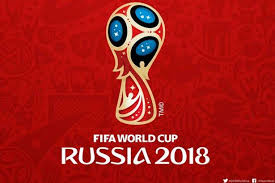By Paul Nicholson
June 23 – Russia has formalised a 30 billion rubles ($560 million) cut in its 2018 World Cup spending. The government cuts will be around planned infrastructure projects with hotel development plans being the hardest hit. There are no plans to cut spending on stadia and construction will continue unaffected.
The order confirming the budget cuts was signed by Prime Minister Dmitry Medvedev. This cut leaves the total 2018 World Cup budget at 631.5 billion rubles ($11.8 billion). More than half the budget is being funded by the federal government, which is providing 335 billion rubles ($6.25 billion).
Russia has already reworked its planning for 2018 having agreed with FIFA to reduce capacity in two stadiums from 45,000. The stadiums in Kaliningrad and Yekaterinburg will have a capacity of 35,000 – lower than any of the 12 venues that hosted World Cup matches in Brazil last year.
Russia most recently submitted a list of 66 bases in 31 cities and towns where national teams can be accommodated during the finals at a planning meeting in Samara two weeks ago.
A list of 25 hotel projects which likely be abandoned and 23 projects which would be substantially downsized was published back in April, with 27 billion rubles ($502 million) expected to be trimmed from World Cup budgets. This has subsequently been increased to 30 billion rubles.
Savings will largely come from a reduction in the number of new luxury hotels from 63 to 38 including 14 new hotels being ditched in Nizhny Novgorod as well as projects in Kaliningrad, Volgograd, Rostov-on-Don and Saransk.
Sports minister Vitaly Mutko said most of the cuts would be in the number of hotels built. “Of course it’s a question of optimizing the preparations. We’re primarily taking out the excess hotels,”
Russia has been hit by the global collapse in oil prices and the fall in value of the rouble – at one point it halved in value to R100:€1, but has since recovered to R72:€1. World Cup organisers have already undertaken an import substitution plan for materials for stadia that were originally being supplied from outside the country but are now being sourced more cost effectively internally.
Dmitry Efimov, a FIFA spokesperson in Russia, told R-Sport: “This is a reflection of the difficult economic situation but this should not have a negative effect on the event itself.”
Contact the writer of this story at moc.l1736489364labto1736489364ofdlr1736489364owedi1736489364sni@n1736489364osloh1736489364cin.l1736489364uap1736489364

